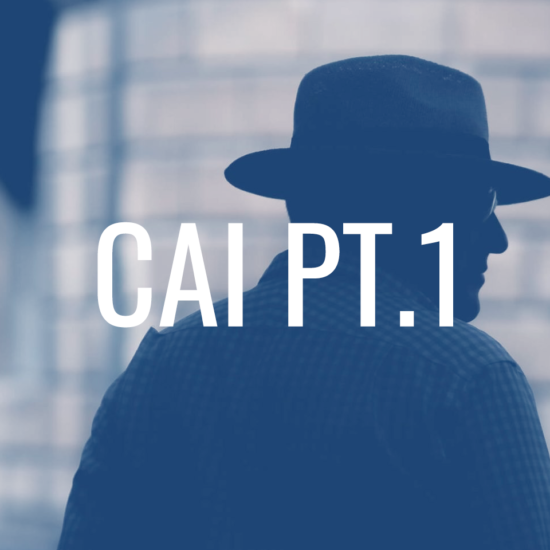
HOA Detective™ | July 18, 2025: Welcome to another installment of TGWAR — The Game Without Any Rules — where HOA management companies (ManCos) make up new rules in real time, bend old ones beyond recognition, and gaslight their clients into believing it’s all for the best. Unfortunately, when ManCos invent accounting methods to suit their own purposes, homeowners pay the price.
Egregious Departure from GAAP: Perhaps the most egregious example of the community management profession’s version of TGWAR is something called “modified cash basis” accounting. https://hoadetective.com/the-game-without-any-rules-tgwar/
Especially when the HOA in question is a large, multi-million-dollar condominium association. If you’ve never heard of this bastardized term before, that’s because it doesn’t really exist in the nomenclature of serious accounting.
The “modified cash basis” accounting method is not recognized by the Generally Accepted Accounting Principles (GAAP), which are the authoritative standards that govern financial accounting in the U.S., to say nothing about the International Financial Reporting Standards (IFRS) recognized by half the civilized world. Nor is this abomination supported by the Financial Accounting Standards Board (FASB). Modified cash basis accounting is, quite literally, a term concocted by HOA ManCos to avoid the rigor and transparency required by accrual accounting, all while pretending to be more sophisticated than basic cash basis reporting.
These reasons alone should preclude the use of the method by ANY organization, such as most HOAs, whose cash flow and financial reporting are structured as follows:
- Group A: (owners) – initial source of funds, which are entrusted to Group B.
- Group B: (Board of Directors) – responsible for financial stewardship of Group A’s funds. In performance of Group B’s duties, Group C is engaged.
- Group C: (ManCo) – engaged to manage the cash flow and attendant financial reporting to by Group A.
In this circular relationship, Group C’s duties including bookkeeping, collection, and dispersal of funds, short and long-term financial reporting, and facilitating of audits and review of the financial statement prepared by Group C. The process includes:
- Financial admin activity that is performed off-site at a physical location across town or perhaps in another state.
- Group C is authorized to disperse funds up to a certain amount, but has access to the bank accounts where Group A’s funds are warehoused.
- Group B meets perhaps once a month.
- Group B often approves the YTD financial reports weeks or months after the report is compiled.
- Until such time approval of the report by Group B, Group A has no idea what is going on with their hard-earned money.
- It is often the case that Group A doesn’t even know the name of the bank/s in which their money is deposited.
- Group A has no access to the records compiled by Group C, and is typically stonewalled by Group C operatives if or when they dare to request a copy of the most basic financial reports.
Case Study Make no Mistake: The latest game of TGWAR unearthed by the Detective is no small-town HOA with a $100K annual budget and a few thousand in the bank. The Association in question handles more than $3 million in annual revenue and manages a reserve fund of more than $4 million. The idea that such an organization would be operating under an improvised “modified cash” accounting framework is not just irresponsible – it borders on malfeasance.
Let’s define our terms carefully, because ManCos thrive in the fog.
Cash Basis Accounting: Records income when it is received and expenses when they are paid. It is simple, straightforward, and wholly inappropriate for complex, multi-year financial planning.
Accrual Basis Accounting: The GAAP standard records income when it is earned and expenses when they are incurred, regardless of cash movement. This method provides a clear picture of obligations and receivables and is used by every credible business and nonprofit of scale.
Modified Cash Basis? That’s where things go off the rails. The so-called “modified cash” method is usually a Frankenstein monster – cash basis reporting with a few select accrual elements grafted on, such as capital expenditures or prepaid insurance. Which elements get “accrued” and which don’t? Well, that’s entirely up to the ManCo or whoever it is that is responsible for preparing the financial statement of the HOA.
The “modified” method of accounting allows the preparer to cherry-pick which liabilities appear, when, and how. In other words, exactly the OPPOSITE of what the accounting process is supposed to achieve. The result is a hodgepodge of inconsistent and often misleading data that provides neither the simplicity of cash basis nor the rigor of accrual accounting.
It’s like building a bridge with just enough bolts to make it look sturdy – until you try to cross it. Modified cash basis accounting reduces transparency and avoids accountability.
Accrual Accounting: Under the accrual method, unpaid bills show up immediately. If a vendor invoice is sitting in a drawer, it appears on the books. If assessments are past due, the full delinquency is recorded and tracked. Under modified cash accounting those same items can conveniently disappear until management or the BOD chooses to recognize them.
Want to make the income statement look better for the annual meeting? Just delay recognizing a reserve expense until the next month. Or ignore outstanding payables until the next budget cycle. There’s no audit trail. No consistent framework. No comparison from year to year.
This “fuzzy math” becomes a tool for obfuscation – one that benefits the ManCo and hides operational ineptitude. When a homeowner association is allowed to use “modified cash” accounting, the owners are denied a true picture of their community’s financial health. Prospective buyers you ask? The buyers be damned!
What is at stake, is the following:
- Deferred liabilities can accumulate silently, resulting in surprise assessments or emergency borrowing.
- Budget planning becomes a guessing game, with no reliable basis for projecting expenses or cash flow.
- Audits and reviews become problematic or entirely impossible because the financials do not conform to any recognizable standard.
- Lenders and insurers may red-flag the HOA as high risk, jeopardizing owner sales or increasing premiums.
- Board members may be misled into thinking the HOA is financially stable when it’s actually skating on thin ice.
For a mature, complex HOA – especially one managing millions in cash flow and reserves – this is financial malpractice, plain and simple.
Quality of Earnings – Thornton L. O’Glove: Way back in 1987 the celebrated author Thornton L. O’Glove in the seminal book Quality of Earnings, famously championed clarity, and truth in financial reporting. Warren Buffett himself cited O’Glove’s book as one of the ten best business books ever written.
Let’s imagine O’Glove stumbling upon a set of HOA financials prepared under “modified cash” basis.
He’d furrow his brow, flip through the statements, and likely mutter:
“This is financial graffiti. It’s not just misleading – it’s engineered opacity.”
O’Glove believed in the sanctity of clean, honest books. He warned of management gimmicks used to inflate earnings or hide losses. One can only imagine his scorn for a made-up accounting method used to paper over real expenses and massage HOA appearances.
“Modified cash,” he might say, “isn’t a methodology – it’s an excuse.”
If you’re an HOA board member, a homeowner, or a buyer reviewing financials, do not accept “modified cash” as an acceptable accounting method. Demand accrual basis reporting. Insist on financials that reflect the real obligations and revenues of the Association.
If your ManCo resists: Ask them why and start looking for another Manco. If they start explaining how “modified cash” is better, clearer, or simpler, remember this:
TGWAR is always being played. And if you’re not the one making the rules, you’re the one being played.
Because You’re Buying More Than a Home!







